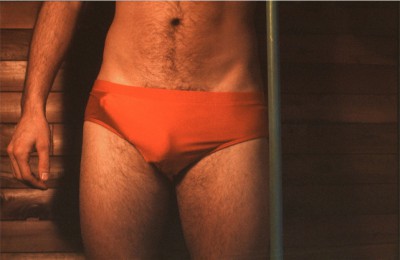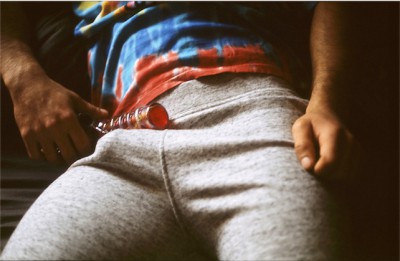The things you say resonate with the situation I am in right now. It makes me think about the unfortunate constellation of power, desire, harassment and resentment. I am sitting in a train and while I am writing this, a man stares at me. I don’t like the situation, because there is no way out for me. I don’t want to engage with him at all, don’t want any mutual communication to go on. But if I ignore him, he just feels free to continue to watch me and if look back at him, he might interpret that as if I am teasing or approving. So I feel trapped in his gaze.
In the discussions about rape or sexual harassment men often accuse women of using/abusing their power to tease men. But what this teasing means is defined by men and their desire. They get angry at their object of desire – the women, because they think she has power over them. But in reality they gave a woman the power she never asked for. Men resent women, because they feel exposed to their desire for her and the danger of being rejected. But the rejecting is a power the women never asked for to begin with. Still men accuse women for provoking desire in them, as if its the woman’s responsibility.
I feel that this is at the core of this wicked misinterpretation of who has power. The person who desires or the person who is desired. I was in situations where men became rude because they felt rejected by me, because they projected that I want them to desire me. But that was a “power” I never even wanted to have. On the same time, I realize again and again, most men are not capable to see themselves as a teasing object of desire for women, because they argue that this power relation only goes one way – women teasing men. They blame women to tease them and don’t acknowledge that men have the same enticing power for women as well. But women don’t rape (besides the few cases, statistically close to 0 in opposition to how often men rape). So apparently men feel more entitled not to limit their desire but see it as an invitation whenever they feel teased. Gender hierarchies become clear if we simply reverse gender positions: for instance I wonder if the female gaze could be seen as so dominant that men wouldn’t be allowed to go topless anymore, because it would be seen as a tease for women and therefore indecent. I always want to go topless in the summer. I would love to feel the warm air on my chest. But people might call the police, if I’d do so. Why? Because society sexualizes my breasts. Honestly I find that a scandal, that I have to cover my chest in hot weather because other people sexualize me. The male gaze defines what I can show and what not. Honestly I find that truly crazy, but it is perceived as totally normal. So, will we come to a point when men have to cover up because women sexualize them? I think if you turn around this perspective you truly understand how crooked and limiting our perception of normality is.
I agree with you that the most attractive men are the ones who are not afraid to lose their strength by not performing a strict and clear image of masculinity. Instead machos smell of a deep insecurity, which they try to cover up. But you can of course also look underneath the macho skin and find other things: As a girl, I liked to watch soccer with my father. I liked watching men being so emotional, sensitive and physical. Indeed I didn’t see soccer as a sphere where men are super masculine but a sphere where they show their beauty in their vulnerability.
But mostly, even if men are shown as sexy it still adheres to the typical gender stereotypes: Men are more and more sexualized like women e.g. in commercials, but still the difference is that sexualized women are portrayed as serving, passive, waiting to be taken, while sexualized men are portrayed as strong, demanding and ready to take possession. So just because we all undress for commercials doesn’t change what women and men perform in their presentation of femininity and masculinity. And that’s pretty boring.
Because the very sad thing is, that the dominant view on sex takes away our ability to explore, enjoy and define our sexuality on our own terms. In the end sex and desire should be about play and not about who wins.
In that regard I also have to respond to your view on prostitution: I actually think there is a possibility that prostitution can be a service to assist in a play, if we don’t find a partner or we have a certain wish about a sexual speciality. I would argue that pornography, sex work, desire or gazing is not a problem in itself. But it becomes a problem, because it is organized according to a sexist world. I also find the comparison of sexwork and being a wife or mistress valid. In a patriarchal and capitalist society women have to use their body and their sexuality as a source of income or social status (e.g. marriage) because that is the way men acknowledge the status of a woman. But is there a way to organize sexual services in an non-damaging way?
We consider penetration altogether as an act that makes women vulnerable or easy to degrade. And that’s a fucked-up notion to begin with, created by patriarchy and a culture which uses rape to discipline and scare women to feel vulnerable and powerless. And of course in the world we live in, men use paid sex to feel power over women, to get their superiority out of degrading her thru using her for sex. In that way it makes me just sick when I think about how popular it became as an image representing sexuality for a man to spread his cum all over a woman’s face. That this is portrayed as the absolute climax of male sexual pleasure. Well not for women…, but that unfortunately has an impact especially on young people’s expectation when this is presented as usual sexual behavior. So you are right, we teach women to feel alienated from their bodies and their pleasure, to be ashamed to explore what turns them on and tell their partners. We hardly see men in porn going down on women, especially not until she comes. Visuality and gender inequality strengthen each other in mainstream porn: men’s pleasure is the sole focus, confirmed in an always-visible ejaculation; this hyper visuality also denies women any orgasm, as there is no obvious visual sign to be used for it. Squirting – the female ejaculation could be one, but not all women do that every time they come. Instead we say that it is sooooooooo complicated for women to have orgasms, sooooooo complicated that you have an easy excuse if you don’t even try… and women feel ashamed to ask for it or to even explore which are the best ways for them to come and tell their partners, because it’s being presented as too much work. It’s all about women serving men and not at all about the different ways women and men can find pleasure. It makes me really really sad. In that way, prostitution in a sexist world approves that men have the right to fuck without caring about their “partners” pleasure. So in that regard we still have a long way to go.
But I do think in a non-sexist society, where sex is not a tool to degrade and control women, where our desire wouldn’t be so fueled with images of objectification, there would be a way that prostitution can be organized in a non-damaging way like any other service with workers rights, unions, health assistance, etc. and if they could organize it on their own terms, not dictated by a sexist culture, pimps and the police. Maybe it could be acknowledged as a healing power, but I know that is utopian right now.
So, regarding African male sexworkers, I do agree that European women find it probably easier to objectify a black man, then a white one, because in a racist culture they learned to take for granted they don’t have to consider African men as subjects with their own perspective and experience. They are easier preys, you can deal with them in a more irresponsible way and get away with it.
That makes me wonder: How do Nigerian women look at men? What does it mean culturally, when they direct their gaze at men. Does it signify an invitation, provocation, an aggression, a transgression? As a white female traveller, I was told Nigerian men would see it as an invitation when I directly look at them. But I wonder if that is one of the clichés which reinforce the cautionary tale, teaching women to be aware about dangerous black men and dismiss any communication from the start, to uphold a race division. I like to smile at passers-by, as an expression of friendliness (but also to be honest, as the performance of the leftwing, liberal white middle class women in a black environment, in a city which is pestered by class and race division), I hate the feeling I shouldn’t smile at male passers-by, to not “provoke” them. In Lagos I got involved in some nice and easy chats because of that, never harassment. I would like to know your thoughts about that.


